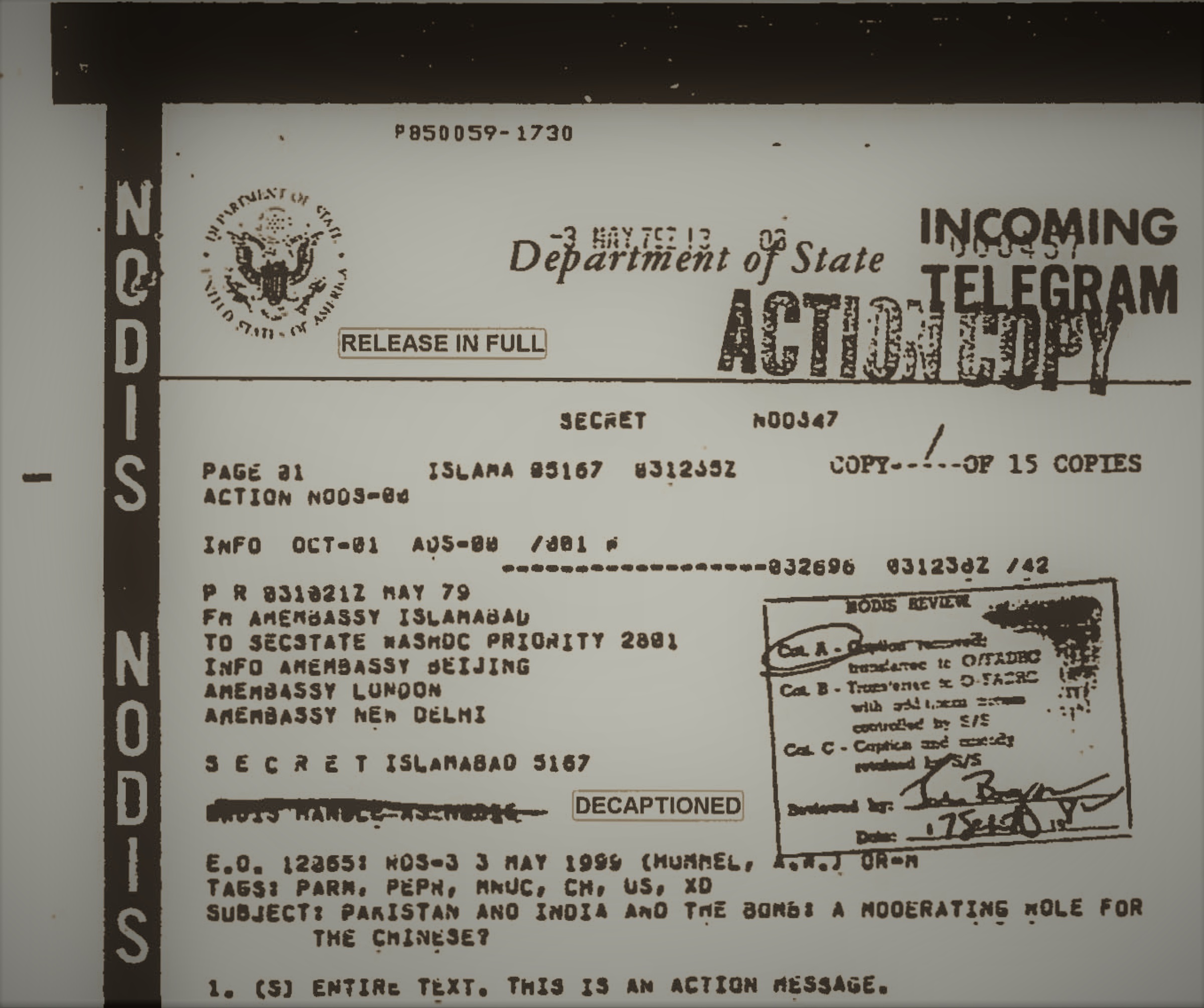The virtual seminar will be held from 12:30 p.m. to 2:00 p.m. (ET)
Pakistan’s acquisition of a nuclear weapons capability during the late 20th century posed a serious challenge to the nonproliferation system that the U.S. and other allies and adversaries had been developing for years. Not only did Pakistan have a bomb to confront India, but it was exporting sensitive nuclear technology to U.S. adversaries. Since the 1970s, the U.S. government had worried about Pakistan’s nuclear potential and continuing declassification of U.S. government records shed light on how those concerns shaped policies and diplomatic interactions. This presentation will focus on the1978-1979 period when senior U.S. government officials realized how far Islamabad had gone in acquiring gas centrifuge technology and that they could not stop Pakistan from eventually building the bomb. This presentation will also explore the options that U.S. policymakers considered, such as a confrontational approach and why they rejected that for one of accommodation.
About the speaker: William Burr is a Senior Analyst at the National Security Archive, where he directs the Archive's nuclear history documentation project. He received his Ph.D. in history from Northern Illinois University, was formerly a visiting assistant professor at Washington College, and has taught at the Catholic University of America, George Mason and American universities. He previously served as Freedom of Information Act (FOIA) Coordinator for the Archive. He served as the Archive's liaison to the Department of Energy's successful declassification program in the 1990s. From 1996 to 1998 he served on the editorial board of the scholarly journal Diplomatic History, from 1999 to 2004 on the Council of the Society for Historians of American Foreign Relations. His latest book is with Jeffrey P. Kimball, Nixon's Nuclear Specter: The Secret Alert of 1969, Madman Diplomacy, and the Vietnam War (2015).
